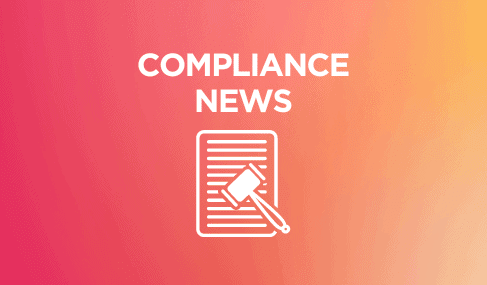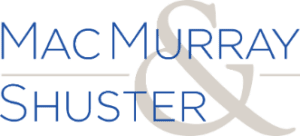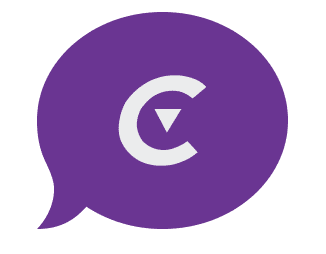
Webinar Recap of Q3 2023 Ahead of the Curve with Shuster

With activity unfolding at the state and federal level at a dizzying speed, keeping up with all of the updates to compliance rules and regulations can be tough.
Convoso CMO Lisa Leight sat down with compliance experts Michele Shuster and Aaron Parry of Mac Murray & Shuster LLP to get the need-to-know compliance updates in the latest edition of our quarterly webinar series: Ahead of the Curve with Michele Shuster.
In the Q3 edition of this series, Shuster and Parry shared a range of updates on:
- Action at the FCC and FTC
- State Mini-TCPA laws
- State privacy laws
Read up on the highlights in the recap below, or tune into the video replay to see the entire session.
The Latest Updates from the FCC and FTC
There was plenty of news out of the FCC and FTC to cover during the conversation. Here’s what you need to know.
Operation Stop Scam Calls
Perhaps the biggest compliance news this quarter was the sweep that hit the telemarketing industry, Operation Stop Scam Calls.
This massive enforcement effort spared no part of the industry—lead generators, VoIP service providers, telemarketing companies, and lead sellers were all targeted as part of the action. The takeaway from all of this, according to Shuster, is not so much regulators’ actions as it is their words. In their statements, the agencies enforcing the sweep pointed to a range of issues that they are most focused on:
- Prerecorded messages
- Ringless voicemails
- Soundboard technology
- So-called “consent farms”
“What this tells us,” says Shuster, “is that enforcement in these areas is not going away. So, it’s more important than ever to partner with companies like Convoso that are spending a significant amount of resources and effort on compliance—and making sure that the companies they work with have compliance programs in place.”
Robocall Mitigation Database
While the Robocall Mitigation Database is not new, this quarter a deadline passed for all VoIP service providers to register with the database. As part of this registration, providers are required to report to the FCC a plan that includes a Know Your Customer (KYC) element as well as outlines a plan of reasonable efforts that will be made to ensure any calls made through the service do not violate the law.
PrivacyCon 2024 Announced
The FTC announced a March 2024 conference, PrivacyCon, that will feature industry speakers and more. Shuster highlighted the event’s call for presentations, saying, “If this is an area that you’re involved in, and you think that you can provide significant input to regulators, [then sign up.] Because they want to hear from the industry and understand how organizations are using information and technology, and hear what the reasonable safeguards are that can be put in place.”
Having these voices heard is particularly important at the moment, says Shuster, as the FTC has made clear that increased privacy enforcement is on the way.
Updates to State Calling Laws – Two Main Categories
State legislators were very busy in the first half of the year, passing a number of updates to state calling laws known as “mini-TCPAs.” Luckily, there wasn’t much in the way of updates to report in the latest quarter.
Now that the dust has settled—for the moment, at least—Shuster took time to take stock of all of the laws enacted at the state level. She broke the legislation down into two categories worth noting: laws that limit the use of automated systems more strictly than the TCPA and laws that established their own distinct call frequency restrictions.
1. State Laws with Automated System Restrictions
- Florida: While the Sunshine State has since revised its state mini-TCPA law, the FTSA, it had previously restricted the use of automated telephone dialing systems.
- Oklahoma and Maryland: These two states, however, followed Florida’s lead and have not gone back. These states’ laws, depending upon the legal opinion, may rule out the use of predictive dialers.
2. Call Frequency Restrictions
- Federal (TCPA): At the federal level, the TCPA limits callers to 3 prerecorded non-commercial, non-telemarketing, or non-profit calls per 30 days unless the called party gives prior express consent.
- Florida: No more than 3 attempts in 24 hours, with no exemptions.
- Maine: No more than 1 solicitation call using an automated telephone calling device to any telephone number during each 8-hour period.
- Maryland and Oklahoma: No more than 3 attempts in 24 hours, though each state has its own lengthy, nuanced list of exemptions.
The Spread of State Privacy Laws
While there have been many changes to state calling laws in recent years, states have also been quite busy passing new privacy-related legislation. Our webinar guests brought guest up-to-date on new laws impacting businesses.
To date, 12 comprehensive privacy laws have been passed, some of which are in effect already while others will take effect soon:
- Laws are in effect in California, Virginia, Colorado, and Connecticut
- On these dates, they will take effect elsewhere:
- December 31, 2023 – Utah
- Mid-2024 – Texas, Oregon, and Montana
- 2025 – Iowa, Delaware, and Tennessee
- 2025 – Indiana
The good news is that none of these laws include a private right of action. Even better, businesses can leverage existing privacy programs to comply with upcoming laws in other states.
During the webinar, Mac Murray & Shuster’s Aaron Parry broke down some of the common components of these laws, as well as some of the unique variations, across requirements for contracts, websites, and consumer rights.
With a lack of movement on federal legislation and the likelihood of more state privacy laws being enacted in the near future, this is one detail-packed conversation you won’t want to miss.
Sign up for the Convoso compliance newsletter to get news delivered straight to your inbox: Subscribe here >
DISCLAIMER: The information on this page, and related links, is provided for general education purposes only and is not legal advice. Convoso does not guarantee the accuracy or appropriateness of this information to your situation. You are solely responsible for using Convoso’s services in a legally compliant way and should consult your legal counsel for compliance advice. Any quotes are solely the views of the quoted person and do not necessarily reflect the views or opinions of Convoso.
